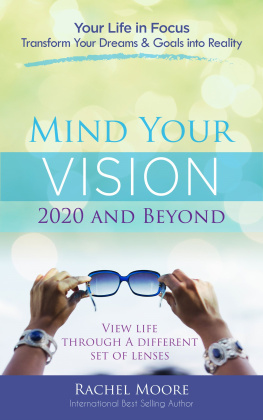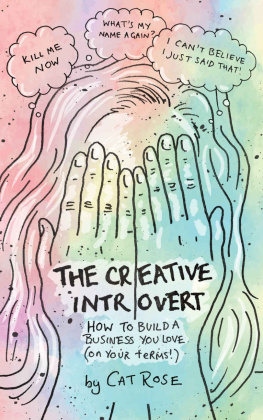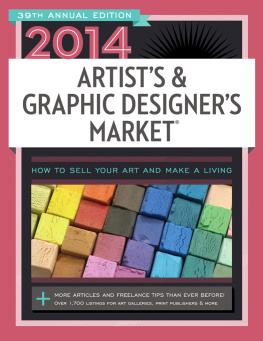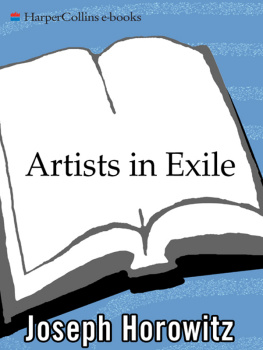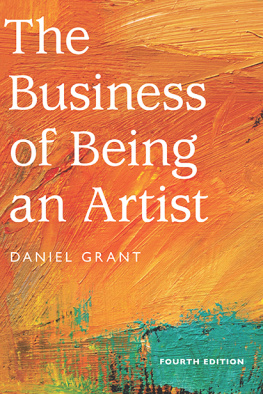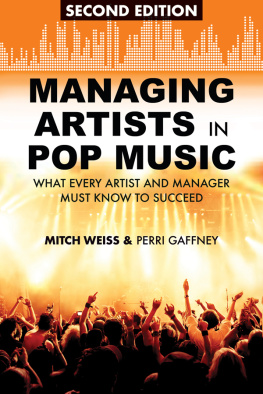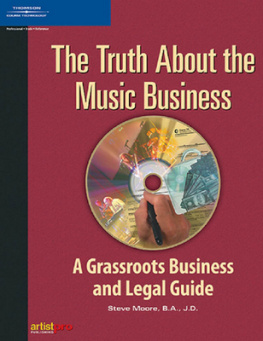To my parents,
who encouraged me to dream
and
To my husband,
who helped me realize those dreams
There is a vitality, a life force, a quickening that is translated through you into action, and because there is only one of you in all time, this expression is unique.
And if you block it, it will never exist through any other medium and be lost. The world will not have it. It is not your business to determine how good it is, nor how valuable it is, nor how it compares with other expressions.
It is your business to keep it yours clearly and directly to keep the channel open. You do not even have to believe in yourself or your work. You have to keep open and aware directly to the urges that motivate you.
Keep the channel open.... No artist is pleased. [There is] no satisfaction whatever at any time. There is only a queer, divine dissatisfaction, a blessed unrest that keeps us marching and makes us more alive than the others.
Martha Graham in conversation with Agnes de Mille, from Martha: The Life and Work of Martha Graham
Contents
Introduction
The life of the arts, far from being an interruption, a distraction, in the life of a nation, is very close to the center of a nations purpose... and is a test of the quality of a nations civilization.
JOHN F. KENNEDY
Making a life and a living as a professional performing artistwhat an extraordinarily rewarding, albeit challenging goal. Rewarding because it allows you to bring your unique voice to the world, challenging because it is fiercely competitive and constantly changing.
Given that you are reading this book, Im going to assume that you are looking for practical, straightforward guidance to help you reach your goal. Whether you are currently studying to become a performing artist, have recently graduated from a performing arts conservatory, or are in the early stages of launching your career, this book will be your compass and provide you with the tools that will help you to navigate the business side of showbiz!
You may be a brilliant artist, but I want you also to become a savvy participant in the business of art. And, as I will be reminding you again and again, the arts are a business. As an example, American Ballet Theatre, for which I served as executive director/CEO from 2004 until 2015, has an annual operating budget of more than $43 million, the Music Center in Los Angeles has an annual operating budget of more than $65 million, and both organizations have hundreds of employees. These are definitely businesses.
First, let me assure you that I am absolutely sympathetic to the challenges you face, because Ive been there. Ive done it myself, and I know what its like to enter a field that is extremely competitive, and where there seem to be no rules. The journey is energizing, terrifying, thrilling, heartbreaking, and always a compelling challenge. My purpose in writing this book is to provide you with information and ways of looking at things that will help you move forward in that dynamic and complex world.
So, who exactly am I to be making these claims? I am currently the president and CEO of The Music Center in Los Angeles, a venue similar to Lincoln Center in New York. I oversee the theaters where the Los Angeles Philharmonic Orchestra, the Center Theatre Group, the Los Angeles Master Chorale, and the Los Angeles Opera perform, and I also oversee all the dance and the Centers education programming as well as the programming for the citys Grand Park.
Previously, as Ive said, I served as CEO of American Ballet Theatre, one of the worlds premier ballet companies, which I originally entered as a performer.
I grew up in Davis, California, which is a small college town, home to the University of California, Davis. When I was eleven, a friend and I signed up for a ballet class at the Davis Arts Center just because we thought it would be a fun thing to do. And it turned out that not only did I love it, I was also very good at it. When I was thirteen, the Joffrey Ballet came to Davis, and I was offered a scholarship to join the companys summer program in New York. I thought I was ready for the big city, but my parents, in their wisdom, didnt think it would be appropriate for a thirteen-year-old girl to spend the summer in New York, essentially on her own. The next summer, however, they allowed me to participate in a program in Carlisle, Pennsylvania, that my ballet teacher had found for me. It was a good program, it was a safe environment, and I had a great time.
I finally went to New York when I was fifteen, spending the summer at the School of American Ballet, the official school of New York City Ballet. The following year my summer studies continued with American Ballet Theatre (ABT), and then, when I was seventeen, I was offered a scholarship to become a full-time student at ABT. By then I thought Id reached the heights of sophistication, but I was really still a pretty nave teenager from a small California town. My parents said that before I moved away and started studying ballet on a full-time basis, I had to finish high school and I also had to get good grades. Naturally, I thought my life was completely over. Dancing was my passion. It was all I wanted to do, and I was sure that Id never get another chance to fulfill that dream of performing with a major ballet companyall because of my parents.
Looking back, and knowing what I know now, I realize how lucky I am to have had parents who not only valued education but also were, of all things, professional economists who modeled for me the essential elements of personal financial responsibility. The following year, when I was eighteen and invited to join the company, I realized that, of course, my life wasnt ruined after all. Not only would I have my chance, but it would be grounded and strengthened by completing my high school education, which also meant leaving the door open to pursue higher education later.
Appreciating this now as I couldnt at the time, I have made it a point as an executive in the arts world to actively encourage students to take their academic education seriously and to complete as much formal education as is possible within their chosen performance field. ABT, for one, no longer hires anyone under the age of eighteen to be part of the professional company. The rationale is, if you are talented at sixteen, you will likely be talented (and that much better trained) at eighteen, and at eighteen you will also have a more complete education and greater emotional maturity to cope with the competitive and extremely intense world of professional ballet.
With hindsight, I see that my parents, whose view back then was much longer than mine, didnt want me to close any doors to my future, which I surely would have done if Id left high school without a diploma. That decision turned out to be more important than any of us could have imagined when injury brought my dancing career to a premature halt at the age of twenty-four. Because Id finished high school with good grades, I was able to shift gears, return to school, earn a BA from Brown University, a masters degree in arts administration from Columbia University, and reenter the world of performing arts in a series of administrative positions.
I tell you all this because I want you to understand that, whatever youve experienced or may need to navigate as you launch your career, Ive either been through it myself or I know someone who has. Yes, my personal experience has been in the world of ballet, but whether youre a dancer, a singer, a classical musician, or an actor, you are a performing artist, which means that you are hoping to make a successful career in a tough, competitive worldone where only a few have the luxury of belonging to an established organization that offers even a modicum of support or the promise of a regular paycheck.


